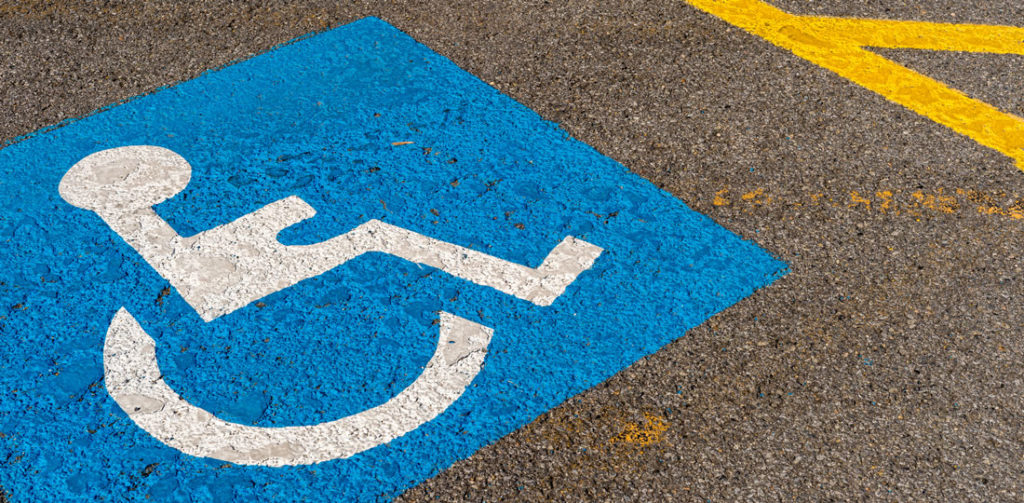When you think of accessible parking, what do you see?
You’re likely envisioning something like the image above: extra-wide spaces that prominently display the international accessibility icon, with a wheelchair-friendly, sloped curb nearby.
But in 2018, maybe it’s time to expand our understanding of what makes parking “accessible.”
How, for example, do traditional handicap parking spaces serve patients who experience chronic dizziness? What can chemotherapy patients do when, in the throes of treatment-induced fatigue, they are forced to walk back to their vehicle parked a mile away?
Here are three simple ways to rethink parking and transportation accessibility at your hospital.
1. Economic Accessibility
Healthcare providers and their parking management partners have the delicate task of balancing their facility’s economic accessibility with the reality of offsetting operational outlay (and, where applicable, cultivating a modest revenue stream.)
To strike that balance, healthcare parking strategies must be community-driven, offering product and price options suitable for consumers of all economic backgrounds. A thoughtful parking strategy allows patients, visitors, and staff to choose a product that best matches their budget.
Sometimes, the success of this dynamic pricing strategy is such that healthcare providers are even able to offer patients free conveniences, like a shuttle service.
Patients undergoing long-term treatments, such as dialysis and chemotherapy, require special consideration when planning and evaluating your facility’s accessibility.
Initiatives like long-term, discounted passes; full in/out privileges; and even designated spaces for the critically ill all minimize potential barriers to care.
A concerted effort to address deficiencies in the economic accessibility of your parking facilities provides an often-overlooked opportunity to deliver the best consumer experience possible and earn patient loyalty.
2. Invisible Disabilities
According to Disabled World, “96% of people with chronic medical conditions live with an illness that’s invisible.” In the U.S. alone, an estimated 10 percent of people have an invisible disability such as chronic pain, chronic illness, or a sleep disorder.
With this in mind, it’s no coincidence that all 20 of the U.S. hospitals featured on the 2017–18 Best Hospitals Honor Roll, including some of our happiest clients, offer either a valet service, shuttle service, or both. These provisions safeguard patients’ ability to access healthcare safely and help visitors connect with their loved ones without the added stress of searching for parking.
Valet service is particularly valuable to patients who are immunocompromised, suffer from diminished strength and stamina, or manage geriatric conditions, as it enables them to get as close as possible to their appointment setting in the comfort of their own vehicle. This reduces the risk of unnecessary exertion and additional anxiety about being late for an appointment. And the return on investment is two-fold: valet service traditionally has a significant impact on customer satisfaction with the entry/exit experience, and it can even provide an additional revenue stream.
3. On-Campus Accessibility
Movement between hospital buildings can present a significant challenge for effective accessibility planning. Sprawling campuses can be particularly daunting for those who tire easily and simply impossible to navigate for others.
Golf carts — or shuttles on larger campuses — can run between buildings on-site to lessen the physical and emotional load of patients and visitors. These patient transportation services also facilitate positive interactions between patients and hospital representatives, which can in turn improve feedback about the entry/exit experience and boost HCAHPS scores.
Impark HEALTH
Broadening our definition and understanding of accessibility is the first step toward making patients and visitors feel validated and well cared for — notions which, as your first point of patient care, are at the very core of Impark HEALTH’s philosophy. Do you think your facility’s parking and transport services are optimized for all levels of patient accessibility? If not, we can help. Contact Impark HEALTH today to schedule a facility review and consultation.




